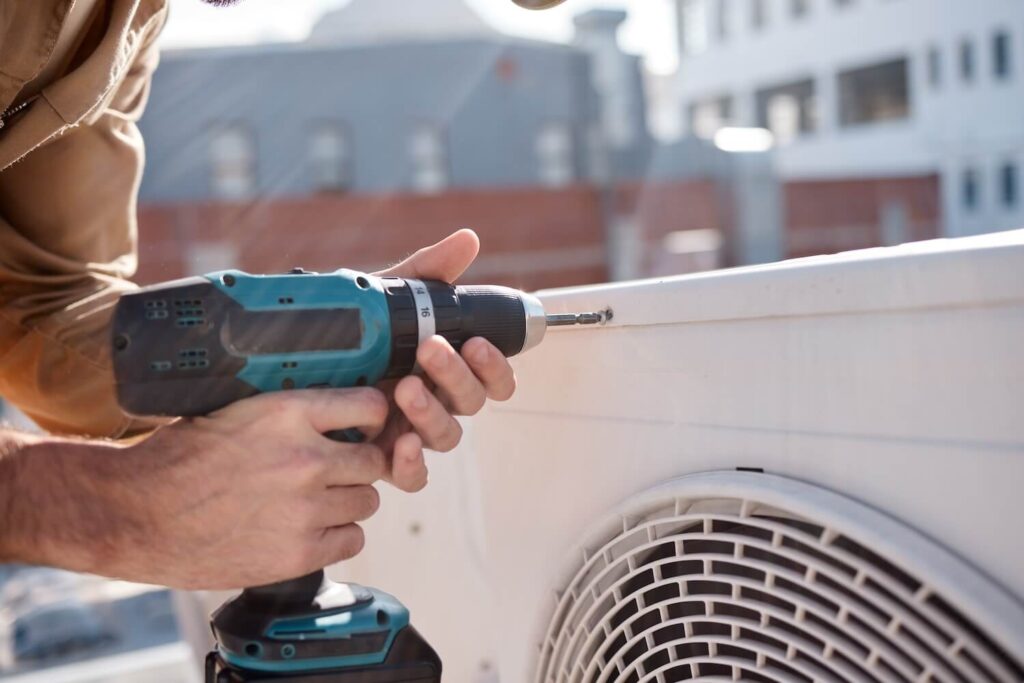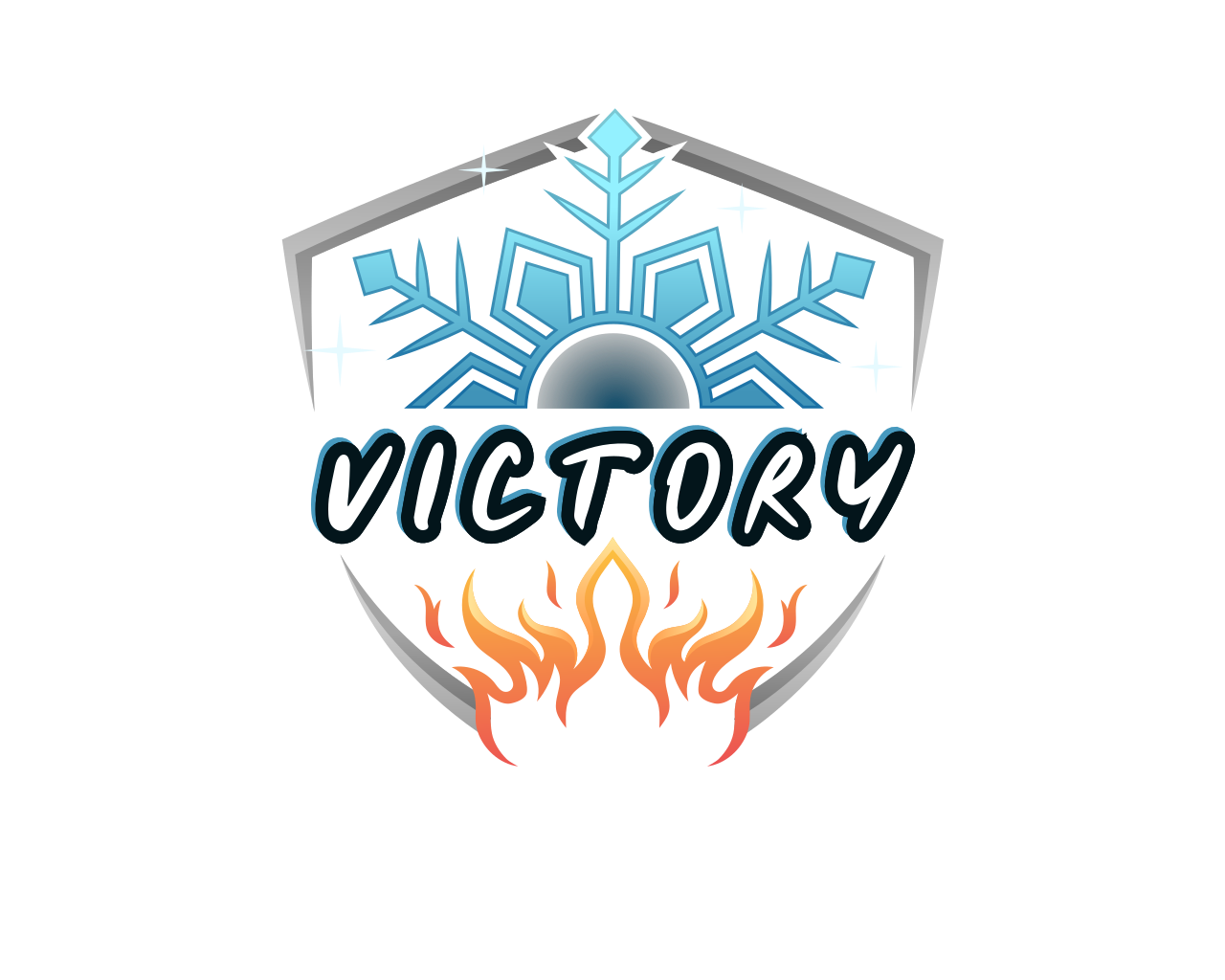
When the summer heat hits, your air conditioning unit becomes your best friend, keeping your home cool and comfortable. However, when that same AC unit starts making strange noises, it can be a source of anxiety. Strange sounds are often the first indicators that something is wrong with your system. While minor noises may not be cause for immediate concern, louder, more persistent sounds could signal underlying problems that, if left unchecked, could lead to costly repairs or even system failure.
Identifying the source of these noises is crucial to taking the right corrective action.
Not only will this help you restore peace and quiet, but it can also prevent further damage to your AC unit. In this article, we’ll explore the most common AC noises, what they mean, and provide actionable repair tips to address them. We’ll also explain why seeking professional AC repair assistance is often the best course of action to ensure the longevity and efficiency of your system.
1. Clanking or Banging Noises: Loose or Broken Components
Among the most alarming sounds you can hear from your air conditioner is a loud clanking or banging noise. This sound can be jarring and often indicates that something inside the unit is either loose or broken. It’s critical to address this issue promptly, as unresolved clanking can damage other internal components, leading to more costly repairs.
Potential Noise Causes:
- Loose Parts: Over time, parts inside the air handler or the outdoor unit may become loose. Vibrations from the system can gradually loosen screws, bolts, or other fasteners, causing them to rattle or bang.
- Broken Fan Blades: The fan blades, which are responsible for circulating air, can become cracked, bent, or otherwise damaged. When these blades are misaligned or malfunctioning, they may hit other components inside the unit, creating a loud banging sound.
- Debris Inside the Unit: Leaves, twigs, or other debris can sometimes find their way into the unit. When the fan blades spin, they can knock into these objects, causing a banging or clanking noise.
What You Can Do:
- Check for Loose Parts: Start by inspecting the unit for any obvious loose parts. Tighten any screws or bolts that you find. If you’re able to easily access the fan, check if the blades are securely attached. If they are misaligned, adjusting or replacing them may resolve the issue.
- Clear Debris: It’s essential to keep your outdoor AC unit clear of debris, such as leaves and twigs. These objects can not only cause strange noises but can also obstruct airflow, reducing the efficiency of your system.
While it may be tempting to try to handle this type of repair yourself, it’s important to keep in mind that improperly handled components can lead to even more severe issues. For the sake of your unit’s longevity and your peace of mind, consider calling a professional HVAC technician to ensure everything is properly secured and aligned.
2. Hissing or Whistling Noises: Air Leaks or Blocked Ductwork
A hissing or whistling sound from your AC can be concerning. These types of noises are usually an indication of a problem that is affecting airflow or air pressure within the system. When airflow is restricted or air escapes through leaks, it can result in a distinct hissing sound.
Potential Noise Causes:
- Leaking Ductwork: If your ductwork is damaged or improperly sealed, air may escape, which can cause a hissing sound. Leaking ducts reduce the efficiency of your system and can make your home less comfortable.
- Clogged Air Filters: A dirty or clogged air filter obstructs airflow, creating resistance as air tries to pass through it. This can lead to a whistling sound, and it can cause your AC to work harder than necessary, increasing energy costs.
- Low Refrigerant Levels: A hissing sound might also come from low refrigerant levels. As the refrigerant passes through the evaporator coil, it can produce a hissing or bubbling sound if there is a leak in the refrigerant line.
What You Can Do:
- Seal Duct Leaks: If you suspect a duct leak, visually inspect the ducts for any visible gaps or damage. Duct tape or specialized sealant can temporarily seal small leaks. For extensive leaks, however, professional help may be necessary to ensure proper sealing and prevent further air loss.
- Replace Air Filters: Replace clogged air filters every one to three months. This simple step can eliminate whistling sounds caused by restricted airflow and improve the efficiency of your system.
- Check Refrigerant Levels: If you suspect that the refrigerant is low or leaking, do not attempt to fix it yourself. Handling refrigerants requires specialized knowledge and equipment. A licensed technician can diagnose and fix refrigerant leaks and refill the system safely.
As much as you might want to handle these repairs yourself, it’s crucial to understand that improperly sealed ducts or incorrectly handled refrigerant can lead to costly consequences. By hiring a professional, you can be sure that the repairs will be done correctly and safely.
3. Buzzing or Electrical Sounds: Electrical Issues or Dirty Coils
Buzzing or electrical sounds coming from your AC are often indicative of a problem with the unit’s electrical components. These sounds may be subtle at first but can quickly escalate if not addressed in a timely manner.
Potential Noise Causes:
- Dirty Coils: The evaporator and condenser coils can become dirty and clogged with dust, dirt, or other debris. When this happens, the coils overheat, which can cause electrical components to malfunction, leading to buzzing sounds.
- Electrical Problems: Buzzing sounds can also stem from faulty or loose electrical wiring, including issues with the capacitor or connections within the control board. These problems are serious and can compromise the overall safety and performance of your AC.
- Compressor Problems: The compressor, which is responsible for circulating refrigerant throughout the system, may also cause buzzing sounds when it begins to malfunction. If the compressor is nearing failure, it may need to be replaced.
What You Can Do:
- Clean the Coils: If your coils are dirty, it’s essential to clean them to ensure your system is functioning properly. Turn off the power to your unit and clean the coils using a soft brush or coil cleaner. If you’re unfamiliar with cleaning coils or if they’re heavily clogged, it’s best to consult a professional to avoid damaging the coils.
- Inspect Electrical Components: Electrical issues can be complex and potentially dangerous. If you hear buzzing sounds that seem to originate from the electrical components, it’s critical to call a licensed technician to check the wiring, capacitor, and other electrical parts.
Electrical problems in your AC system can be hazardous, and handling them without proper knowledge can lead to even more serious issues. Professional technicians are equipped with the tools and expertise to diagnose and repair electrical problems safely.
4. Rattling or Vibrating Sounds: Loose Parts or Unbalanced Fan
Rattling or vibrating sounds often indicate that something inside the unit is loose or unbalanced. These sounds can vary in intensity and may increase if the issue is not resolved promptly.
Potential Causes:
- Loose Fan Blades: The fan blades, which circulate air through the system, may become loose or misaligned. This can cause them to rattle against the side of the unit or wobble while spinning.
- Vibrating Components: If parts like the compressor or motor aren’t properly secured, vibrations from these components can cause rattling sounds throughout the unit.
- Unbalanced Fan Motor: An unbalanced fan motor or fan blades can cause the fan to spin unevenly, resulting in vibrations or rattling noises.
What You Can Do:
- Tighten Loose Parts: Inspect the fan blades and other components for any visible signs of looseness. Tighten any screws, bolts, or nuts that are holding parts in place.
- Balance the Fan Blades: If the fan blades are unbalanced or damaged, you may need to replace them. It’s important to properly balance the fan to ensure smooth operation and prevent further damage.
- Secure Vibrating Components: If the compressor or motor is causing excessive vibrations, it may require professional repair to secure or replace the components properly.
While you may be able to tighten some loose parts, more complex issues such as unbalanced fans or vibrating motors are best handled by a professional. Incorrectly addressing these issues could result in further damage to your system, leading to higher repair costs in the long run.
5. Gurgling or Glugging Noises: Drainage Issues or Refrigerant Problems
Gurgling or glugging noises from your AC are often caused by drainage issues or refrigerant flow problems. These sounds may seem innocent, but they can signal significant underlying issues that could lead to a breakdown.
Potential Causes:
- Clogged Condensate Drain Line: The condensate drain line is responsible for carrying moisture away from the AC system. If it becomes clogged with dirt, algae, or mold, water can back up, causing gurgling or glugging sounds.
- Refrigerant Flow Issues: Low refrigerant levels, often due to a leak, can result in improper refrigerant flow through the system, causing bubbling or gurgling noises.
- Improper Airflow: Restricted airflow due to clogged filters, closed vents, or other obstructions can create pressure fluctuations inside the system, resulting in gurgling sounds.
What You Can Do:
- Clear the Drain Line: If the condensate drain line is clogged, you can use a wet/dry vacuum or a plumber’s snake to clear the blockage. Flushing the line with vinegar or a mild bleach solution can help prevent future clogs.
- Check Refrigerant Levels: If you suspect a refrigerant leak or low refrigerant levels, it’s essential to call a professional HVAC technician to inspect and refill the refrigerant. Refrigerant leaks can be hazardous and require specialized tools to repair.
For complex issues like refrigerant problems or clogged drain lines, it’s always a good idea to rely on a professional. Improper handling of refrigerant can lead to health and safety risks, while blocked drain lines can cause water damage if not fixed properly.
When to Call a Professional HVAC Technician
While DIY AC repairs may be tempting, there are several compelling reasons to hire a professional HVAC technician when your AC is making strange noises. Here are a few key benefits of going with a professional:
- Expert Diagnosis: A professional technician has the training and experience to quickly identify the root cause of the noise and make the appropriate repairs.
- Safety: AC systems involve electrical components and refrigerants that can be dangerous to handle without the proper training.
- Long-Term Solutions: Professionals don’t just fix the immediate issue; they ensure that your system is operating at peak efficiency and address any underlying problems to prevent future breakdowns.
- Warranty Protection: Attempting DIY repairs may void your warranty, especially if you’re dealing with a manufacturer defect. A professional technician can perform repairs in compliance with warranty guidelines.
Ultimately, when you hear strange noises coming from your AC, it’s a good idea to seek professional assistance to avoid further damage and ensure your system continues to run smoothly.
Conclusion
If your AC is making strange noises, don’t wait for the problem to escalate. Whether it’s a loose part, electrical issue, or refrigerant leak, professional repair can save you time, money, and stress in the long run. Contact our expert HVAC technicians today for a thorough inspection and reliable repairs, ensuring your system stays efficient and your home stays comfortable all year long.
